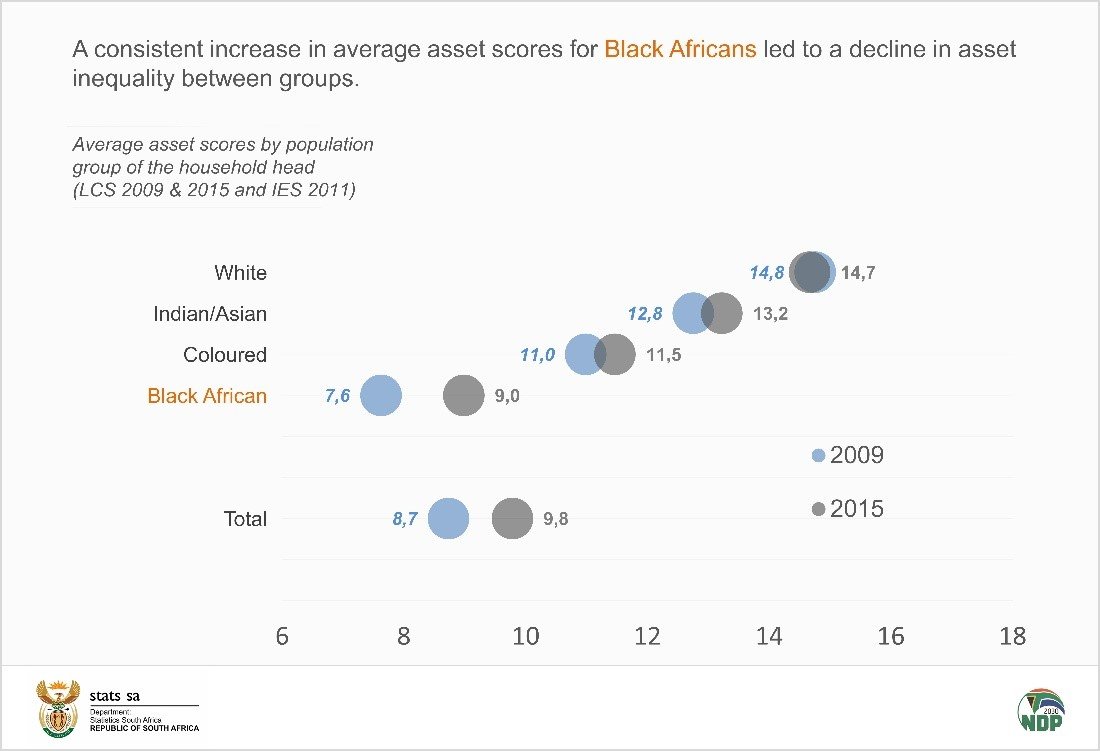This "only a few" benefit from BEE narrative really needs to be challenged. Lets get some facts straight... a thread. https://twitter.com/StuartPringle1/status/1303998545272492033
The BEE Commission analysed almost 6000 BEE certificates this year. It found that ave black ownership in companies had increased to 29% from 25%. While it doesn't determine how many individuals benefit from this ownership, smaller companies often use staff schemes. So its a lot.
In 2015 @intellidex studied the BEE schemes of the JSE top 100 ( https://www.intellidex.co.za/reports/the-value-of-bee-deals/). It found R317bn in NAV was created for black people. Of this 16% was staff schemes, 22% trusts and community schemes, 62% "strategic partners". "Aha" you say - that's the narrow few. But,
Those strategic partners include the likes of Thebe, HCI, MIC, WDB, Kagiso, Shanduka, Safika and many others that either are non-profits or have non-profits as major shareholders. These have, for e.g., funded thousands of scholarships for black people.
Anecdotally, other deals such as Standard Bank's, created thousands of black millionaires among its staff. Aha! you say. But many used this capital to start businesses and invest in their communities. This is part of the normalisation of economic activity. Which is the point!
But ownership deals are a small part of BEE. Far more impactful is employment equity and enterprise and supplier development (you may quibble that EE is not part of BEE as a separate act, but these policies work together). And these have made a big difference.
Here is how the formal workforce has changed. This table shows how a typical group of 100 workers in 1994 changed in the next 20 years. Note the rate of growth in skilled and semi skilled categories of black Africans, Indians and coloureds. EE made this happen.
There are also many specific examples of BEE having created successful black-owned companies. The REIPPP programme required high black ownership. That led to the creation of firms like Pele Green Energy, which has won global awards for quality https://vimeo.com/277797925
There are many others, if you both look. Startups like Gradidge Mahura, DSES Project Solutions, Kwame Diamonds, Sinayo Securities... just to name a few. All took hard work, but BEE helped the probabilities of success. Another step toward normal.
But what matters is the cumulative effects of the income impact of EE and the wealth effect of BEE. This is an important success indicator of BEE showing how black asset ownership increased 2009-2015:
Of course, there has been corruption. Major corruption. The focal point of corruption has been in public procurement. The state capture era is a blight on our development as a country. But let us distinguish between corruption in procurement and BEE.
Sure, BEE was sometimes used in the process of corruption. But it was not a *cause* of it. Plus, undermining BEE through fronting is another form of corruption. And corruption in public procurement is a problem in many countries without BEE. Take the UK: https://www.thetimes.co.uk/article/the-times-view-on-the-governments-ppe-procurement-contact-tracing-q2lg5sf2x
Some commentators have tried desperately to link BEE to tender corruption. But what is their real issue? Is it the corruption or the BEE? If the former, lets tackle procurement corruption head on. Lets also be honest about the benefits of BEE in normalising the SA economy.
What is the real agenda of those attacking BEE? Is it because they don't care about normalising the economy or providing redress for Apartheid, but instead see it as a threat to their own efforts to accumulate wealth?

 Read on Twitter
Read on Twitter



